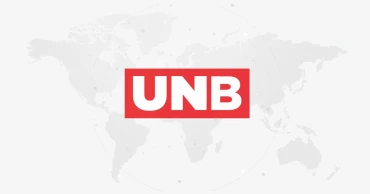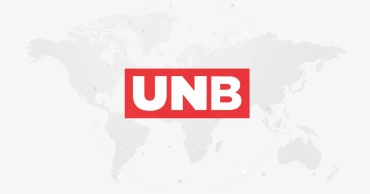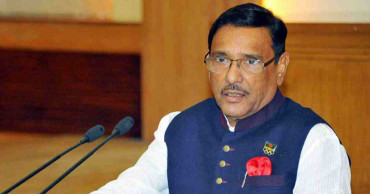World Press Freedom Index
Bangladesh behind both Pakistan and Afghanistan in World Press Freedom Index 2023
Bangladesh has ranked 163rd out of 180 nations, according to Reporters Without Borders’ (RSF) World Press Freedom Index 2023.
Bangladesh is behind both Pakistan and Afghanistan in this year’s index – with Pakistan ranking 150th and Afghanistan ranking 152nd.
According to RSF: “The Digital Security Act (DSA) is one of the world’s most draconian laws for journalists. It permits searches and arrests without any form of warrant, violation of the confidentiality of journalists’ sources for arbitrary reasons… In this legislative environment, editors routinely censor themselves.”
“Most of the leading private media are owned by a handful of big businessmen who have emerged during Bangladesh’s economic boom. They see their media outlets as tools for exercising influence and maximising profits, and they prioritise good relations with the government over the safeguard of editorial independence,” it adds.
From previous year: B'desh slips 10 notches in RSF press freedom index
The World Press Freedom Index’s analysis for Bangladesh further says: “In the past decade, radical Islamist groups have waged extremely violent campaigns that have led to journalists being murdered. These groups now use social media to track down journalists who defend secularism, the right to alternative opinions or religious freedom.”
Asia, in general, did not fare well when it comes to press freedom. India ranked 161st and China ranked 179th in the World Press Freedom Index.
Regarding India, the index’s observations are: “Modi has an army of supporters who track down all online reporting regarded as critical of the government and wage horrific harassment campaigns against the sources. Caught between these two forms of extreme pressure, many journalists are, in practice, forced to censor themselves.”
Reporters Without Borders noted that India has seen a significant decline in press freedom in recent years, with increasing threats and attacks on journalists, while China remains “one of the world’s most repressive countries” when it comes to media freedom.
Read More: Repeal DSA, demands TIB marking World Press Freedom Day
“The same trend can be found in Bangladesh (163rd) and Cambodia (147th), where governmental persecution of independent media has intensified in the run-up to elections that are due to be held in the coming months,” it says.
The top ten countries in the index, with the highest press freedom, are: Norway, Ireland, Denmark, Sweden, Finland, Netherlands, Lithuania, Estonia, Portugal, and Timor-Leste.
These countries have strong democratic institutions and robust legal frameworks that protect the freedom of the press and the right to information.
The report highlights the need for governments to prioritize the protection of journalists and the promotion of press freedom as a fundamental human right.
It also calls on the international community to take action to hold governments accountable for violating these rights and to support independent journalism around the world.
Read More: Hasan trashes RSF report on press freedom as malicious & unacceptable
2 years ago
Repeal DSA, demands TIB marking World Press Freedom Day
Transparency International Bangladesh (TIB), a civil society watchdog, has again called for the repeal of the Digital Security Act on the occasion of World Press Freedom Day.
The Bangladesh chapter of Transparency International, which fights corruption globally, also called upon the government to create a congenial environment to ensure all basic rights including security of life of the media workers.
The organisation made the demands at a media release signed by its Director (Outreach and Communication) Sheikh Manjur E Alam on Tuesday.
TIB Executive Director Dr Iftekharuzzaman said, “The government should ensure a congenial environment for the media so that they can perform their duties without any obstruction as the fourth pillar of the country.”
He said although the number of media increased in the country remarkably, on the other hand fearless journalism also decreased.
Read more: Free journalist Shams, repeal DSA: TIB
“They are being obstructed due to harassment, attacks and lawsuits by the use of state mechanisms under the shadow of those in power,” he said.
The TIB executive director noted that Bangladesh slid 10 places in the ‘2022 World Press Freedom Index’, placing 162nd out of 180 countries. The 2023 index is slated for release this week by Reporters Without Borders, also known by its French acronym RSF (Reporters sans frontières).
Iftekharuzzaman alleged that the DSA has been abusedleading to journalists being implicated in one out of every four cases filed under the act.
Journalists now engage in self-censorship due to attacks on the media workers, lack of justice and fear of the DSA, he added.
2 years ago
Hasan trashes RSF report on press freedom as malicious & unacceptable
The Reporters Sans Frontieres' (RSF) report on Bangladesh's declining position on the World Press Freedom Index is malicious, offensive and unacceptable, said Information and Broadcasting Minister Hasan Mahmud on Thursday.
The minister made this remark while exchanging Eid greetings with reporters at his residence in Chattogram.
“The Paris-based RSF has always been hostile towards Bangladesh,” he said, adding that RSF also reports untruths and fabrications about the media in Bangladesh.
“They published a report last year with very offensive remarks about Prime Minister Sheikh Hasina," he said.
Also read: B'desh slips 10 notches in RSF press freedom index
In the wake of this, as the larger journalist unions of Bangladesh protested, similarly, some Bangladeshi expatriates in Paris had issued legal notices against the RSF through their French lawyers, said the minister.
The legal notice states that they cannot make such comments about the head of state or government of any country, as stated in French law, which means they have done so violating the French law, Hasan added.
He also said RSF collects data from the sources who constantly carry out propaganda against Bangladesh abroad and prepares reports which are of no value.
Last year, various journalists' organisations, including the Bangladesh Federal Union of Journalists (BFUJ), protested against the report and made statements, he added.
“When the same organisation talks about the media in Bangladesh again, it is natural to assume that they are continuously publishing reports against Bangladesh with malicious intent,” he said.
Mentioning that RSF has also talked about the Digital Security A9ct, Hasan said that when there was no digital issue, there was no issue of providing digital security.
“When it comes to digital in different countries including Bangladesh, different countries have enacted laws to provide digital security to the masses.”
This law has been and is being formed in almost all the countries of the world. Digital security laws have been enacted in Singapore, India, Pakistan, USA, Australia and also in Bangladesh, he said.
“This law is meant to provide digital security to all people. Many journalists have taken advantage of the law to sue for defamation,” said the minister.
“The law should not be abused against anyone, be it a journalist or common people," he said.
He also said, “There is a lot of discussion in Bangladesh about the provisions of the Digital Security Act, some criticize, but the laws that have been enacted in other countries, including India and Pakistan, have similar provisions.”
Besides, the European Union is working on a framework law, under which steps will be taken in different countries, law will be enacted," he said.
France has similar laws, he added. “So, since the RSF is already hostile towards Bangladesh, they have taken Bangladesh down a few steps. We reject it outright.”
3 years ago
World Press Freedom Index and Retrogressive Bangladesh
World Press Freedom Index has placed Bangladesh in 152 this year. A total of 180 countries were still as always. Following Honduras, Bangladesh has secured its position with a score of 49.71 just before Turkey. Reporters Without Border – which is also known as Reporters sans frontières (RSF) – has ensured it on their web homepage on the last 20th April 2021. They mentioned the word “Tougher politics” while showing the reason for it. Besides, they added the consequences of the covid-19 pandemic. RSF also pointed the police and civilian violence against reporters. Thus, journalism got completely blocked or seriously impeded in 73 countries. It is just as devastating as coronavirus.
World Press Freedom Index at a glance
The Press Freedom Index is a yearly list for ranking of countries based on the freedom of journalism. An international non-Government organization named Reporters Without Border, shortly RSF, compile and publish the list. Since 2002, they have been releasing the list intending to safeguard the right to freedom of information. They mainly rank 180 countries based on the freedom of journalism.
Read Why press freedom matters
Survey Questionnaire
RSF develops the index through a survey of 87 questionnaires following the 7 general criteria.
1. Pluralism (Opinions in the media space)
2. Media independence
3. environment and self-censorship
4. legislative framework
5. Transparency
6. Infrastructure
7. Abuses
Read Prothom Alo senior reporter Rozina arrested under Official Secrets Act
The survey questionnaire focuses on the legal framework for the media including-
➢ the consequences for press offenses
➢ the way Government regulates the media
➢ the extent of independence of the public media
➢ uninterruptible information flow over the Internet
Read Rozina Islam: Journalism Vs the Colonial hangover of official secrecy
Survey Respondents
The survey respondents are the RSF’s partner organizations. They are 150 correspondents of 18 freedom of expression non-government organizations in five continents. A remarkable number of journalists, researchers, jurists, and human rights activists around the world also participate in this survey.
Scoring
RSF staffs monitor both the victims and the assailants of the press offenses to evaluate the final score. The victims are the journalists, netizens, and media assistants, while the violence may come from the state, armed militias, clandestine organizations, or pressure groups.
RSF send the survey questionnaire translated into 20 languages to the corresponding countries. They assign a score on each country based on the answers given.
Read: Top Bookstore Cafés in Dhaka: 6 Places Bringing Back the Joy of Reading
0 point is for the best while 100 points is for the worst. Accordingly, RSF has a colorful scoring map categorizing the press freedom status of countries.
➔ 0 to 15: Good (White)
➔ 15.01 to 25: Satisfactory (Yellow)
➔ 25.01 to 35: Problematic (Orange)
➔ 35.01 to 55: Difficult (Red)
➔ 55.01 to 100: Very Serious (Black)
Read Freedom of speech threatened in the name of Digital Security: TIB
World Press Freedom Index 2021 Toppers
1. Norway: Score → 6.72
2. Finland: Score → 6.99
3. Sweden: Score → 7.24
4. Denmark: Score → 8.57
5. Costa Rica: Score → 8.76
6. Netherlands: Score → 9.67
7. Jamaica: Score → 9.96
8. New Zealand: Score → 10.04
9. Portugal: Score → 10.11
10. Switzerland: Score → 10.55
Read Freedom of speech must not be undermined with false propaganda: PM
Underneath World Press Freedom Index 2021
1. Eritrea: Score → 81.45
2. North Korea: Score → 81.28
3. Turkmenistan: Score → 80.03
4. China: Score → 78.72
5. Djibouti: Score → 78.62
6. Vietnam: Score → 78.46
7. Iran: Score → 72.70
8. Syria: Score → 70.63
9. Laos: Score → 70.56
10. Cuba: Score → 63.94
Read World Press Freedom Index: Bangladesh slips one place to 151st
Bangladesh’s Whereabouts in World Press Freedom Index
The number 152 in the crowd of 180 with a score of 49.71 basically represents the level of freedom available for Bangladeshi journalists. In the last 10 years, Bangladesh’s scenario is as follows:
1. 2011 Ranking 112 Score → 54
2. 2012 Ranking 129 Score → 57
3. 2013 Ranking 144 Score → 42.01
4. 2014 Ranking 146 Score → 42.58
5. 2015 Ranking 146 Score → 42.95
6. 2016 Ranking 144 Score → 45.94
7. 2017 Ranking 146 Score → 48.36
8. 2018 Ranking 146 Score → 48.62
9. 2019 Ranking 150 Score → 50.74
10. 2020 Ranking 151 Score → 49.37
Last year, the coronavirus disaster and accompanying lockdown led to an alarming growth in police and civilian violence towards newshounds. Some journalists, bloggers, and cartoonists had been additionally arrested and prosecuted for his or her reporting of the pandemic and its effect on society. Under the Digital Security Act 2018 “bad propaganda” is punishable via way of means of up to fourteen years in prison. As a result, self-censorship has reached unparalleled ranges due to the fact editors are justifiably reluctant to hazard imprisonment or their media outlet’s closure.
Read: Watchdog: Media freedom has deteriorated during pandemic
However, despite this violence, there is also a length of speedy improvement for Bangladesh’s media marketplace, with many retailers taking part in each profitability and affect an increasing marketplace. Over the beyond decade, big privately-owned Bangladeshi agencies have moved into the marketplace and lots of the countrywide media is now inside the palms of the most important company organizations inside the country.
Final words
Regardless of World Press Freedom Index criticism, the circulation of information demands unconditional independence. However, it is needless to say that professional reporting requires minimum ethics. Otherwise, the knowledge may go beyond authenticity. A journalist must handle the power given to him carefully. Similarly, every government and non-government entity should cooperate with them spontaneously. And that is when the general people can expect the truth.
Read Future of journalism depends on adaptation, professionalism: Dr Arefin
4 years ago
‘Independent media’ spreading lies against govt: Quader
Awami League General Secretary Obaidul Quader on Tuesday said that media in Bangladesh can spread lies against the government as those are ‘independent’.
“If the government has any control over the media, then how is it criticising the government and spreading lies about it daily?” the ruling party’s number two man asked, referring to a comment of BNP Secretary General Mirza Fakhrul.
At a regular briefing, the Road Transport and Bridges Minister said the BNP was still alive after drubbing in polls and failing to launch street protests thanks to the ‘independent media’.
Also read: Bangladesh drops one notch in World Press Freedom Index
Bangladesh was ranked 152 in the 2021 World Press Freedom Index (https://rsf.org/en/bangladesh), slipping one notch.
Tackling pandemic
Quader said cash and food assistance are being provided to 36.5 million helpless, unemployed and low-income families and warned against irregularities in the distribution process.
Mentioning that the government is working tirelessly to help the people during the pandemic, Quader said that it is providing financial and food assistance to protect the unemployed.
4 years ago
Watchdog: Media freedom has deteriorated during pandemic
There’s been a “dramatic deterioration” of press freedom since the pandemic started to tear across the world, Reporters Without Borders said in its annual report published Tuesday.
The group’s new World Press Freedom Index, which evaluated the press situations in 180 countries, painted a stark picture and concluded that 73% of the world’s nations have serious issues with media freedoms.
It says countries have used the coronavirus pandemic, which erupted in China in late 2019, “as grounds to block journalists’ access to information, sources and reporting in the field.”
Also read: Media Freedom Coalition concerned over Myanmar military’s efforts to muzzle media
This is particularly the case in Asia, the Mideast and Europe, the media group said.
“Journalism is the best vaccine against disinformation,” RSF secretary-general Christophe Deloire said. “Unfortunately, its production and distribution are too often blocked by political, economic, technological and, sometimes, even cultural factors. In response to the virality of disinformation across borders, on digital platforms and via social media, journalism provides the most effective means of ensuring that public debate is based on a diverse range of established facts.”
Also read: Bangladesh drops one notch in World Press Freedom Index
Issues have also arisen from a drop in public trust in journalism itself. The group said 59% of people polled in 28 countries claimed that journalists “deliberately try to mislead the public by reporting information they know to be false.”
4 years ago
World Press Freedom Index: Bangladesh slips one place to 151st
Bangladesh has been ranked 151st out of 180 countries in this year’s World Press Freedom Index (WPFI) by Reporters Without Borders.
5 years ago


.jpg)


.jpg)
.jpg)


